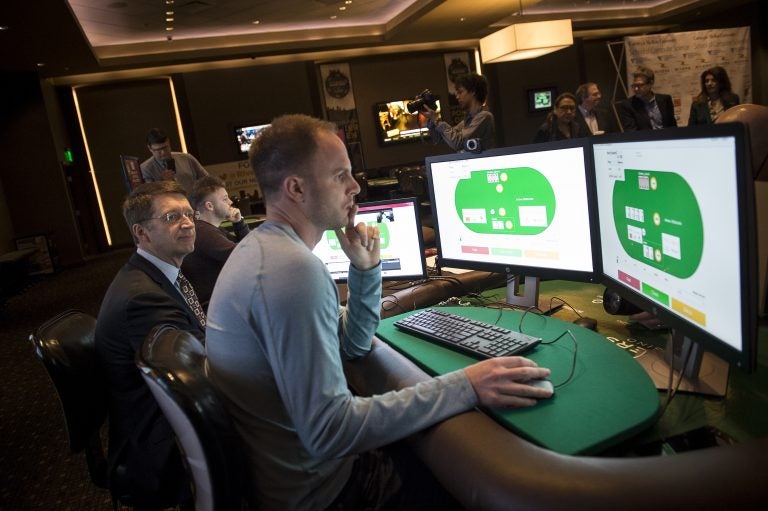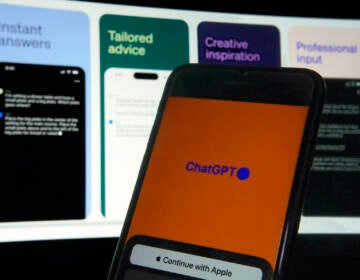Poker-winning AI might soon help consumers call companies’ bluff
Computer scientists say the artificial intelligence could be used for everything from getting cheaper plane tickets to cybersecurity.

Professional poker player Jason Les tries to beat an A.I. at the game. Photo provided by Carnegie Mellon University.
In January, computer scientists at Carnegie Mellon University pitted their artificial intelligence against four professional poker players in a 20-day poker contest.
Now the researchers have published the details of how they did it in the journal Science, saying their technology could be used for a lot more than poker. And one of the AI co-creators is forming a company to do just that.
Of course, computers have already beaten humans at chess, Go and other games.
But Carnegie Mellon computer science professor Tuomas Sandholm said to understand the significance of the poker-playing AI, think about how poker is different from chess or Go.
“There is more than one player, there is information that you don’t know — some of which your opponent may know at the time when you have to make a decision,” he said. “This is very ubiquitous in the world, of course.”
Sandholm said many scenarios in the real world fit that description, which he calls “imperfect information games,” and that’s where the AI could be useful.
He has founded a company where he will be applying this technology to help companies set prices, come up with business strategies, and negotiate with partners, among other things. He said there are also military and cybersecurity applications.
Doctoral student Noam Brown, another creator of the artificial intelligence, said it could also help you negotiate for better deals on plane tickets. He explains that airlines wants to sell tickets at a certain price, but not all buyers want to pay that price, and that’s where the AI could come in.
“If you have an AI that can negotiate on your behalf, it can take information about what price you’re actually willing to pay, what are your different circumstances, and then negotiate with the airline to try to get you to the best deal possible,” Brown said. “These AIs could reach fair outcomes, could negotiate deals that would otherwise not happen — and I think that that would be a huge boon for society.”
Sandholm and Brown said they will be working on the applications next year.
WHYY is your source for fact-based, in-depth journalism and information. As a nonprofit organization, we rely on financial support from readers like you. Please give today.





